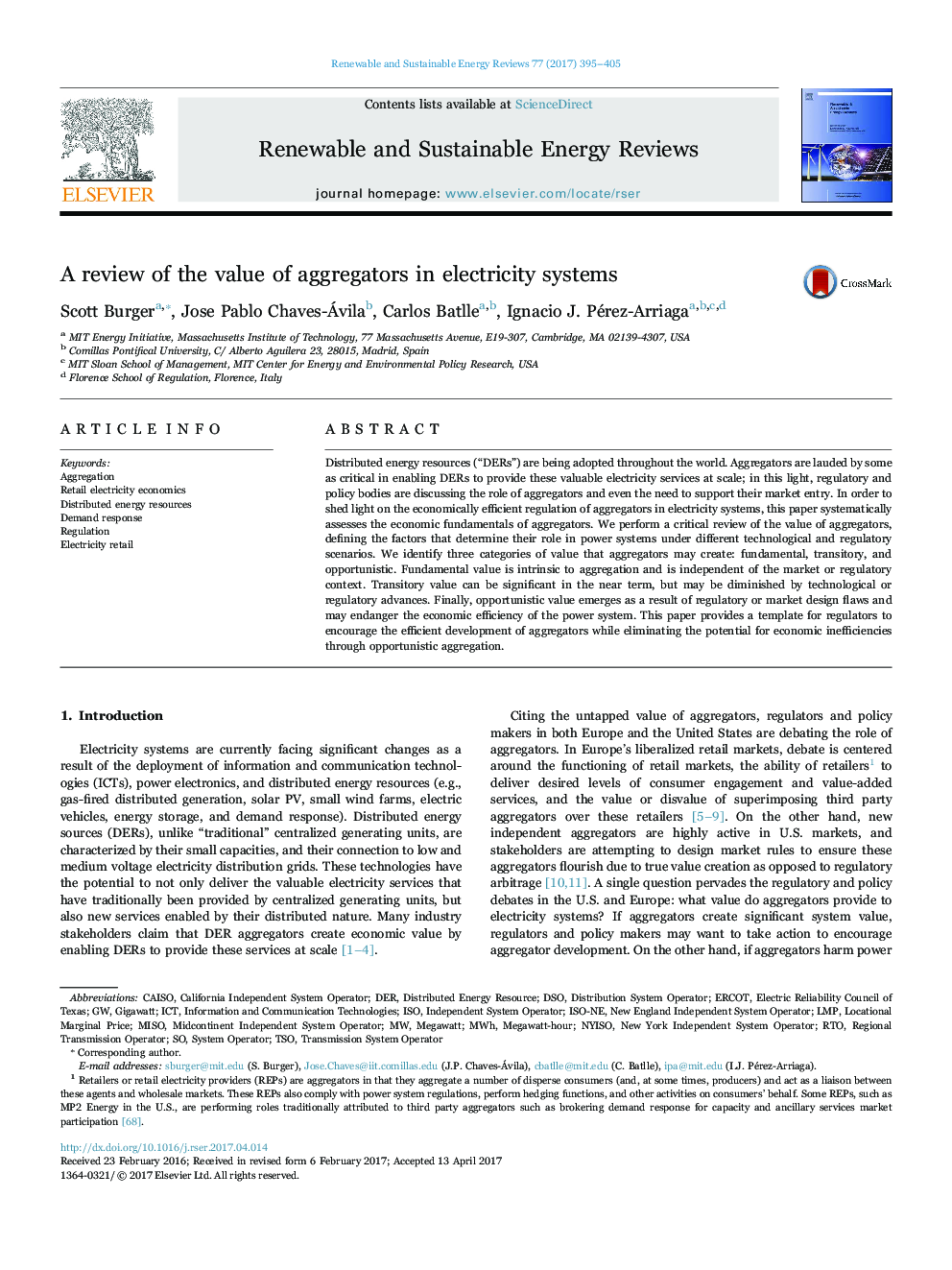| Article ID | Journal | Published Year | Pages | File Type |
|---|---|---|---|---|
| 5482948 | Renewable and Sustainable Energy Reviews | 2017 | 11 Pages |
Abstract
Distributed energy resources (“DERs”) are being adopted throughout the world. Aggregators are lauded by some as critical in enabling DERs to provide these valuable electricity services at scale; in this light, regulatory and policy bodies are discussing the role of aggregators and even the need to support their market entry. In order to shed light on the economically efficient regulation of aggregators in electricity systems, this paper systematically assesses the economic fundamentals of aggregators. We perform a critical review of the value of aggregators, defining the factors that determine their role in power systems under different technological and regulatory scenarios. We identify three categories of value that aggregators may create: fundamental, transitory, and opportunistic. Fundamental value is intrinsic to aggregation and is independent of the market or regulatory context. Transitory value can be significant in the near term, but may be diminished by technological or regulatory advances. Finally, opportunistic value emerges as a result of regulatory or market design flaws and may endanger the economic efficiency of the power system. This paper provides a template for regulators to encourage the efficient development of aggregators while eliminating the potential for economic inefficiencies through opportunistic aggregation.
Keywords
RTORegional Transmission OperatorCAISOElectric Reliability Council of TexasERCOTDERmwhTSODSOLMPsystem operatorTransmission system operatorDistribution system operatorindependent system operatorCalifornia Independent System OperatorISOAggregationInformation and communication technologiesICTLocational marginal priceRegulationDistributed energy resourcesDistributed energy resourcemegawattMegawatt-hourMISODemand responseGigawatt
Related Topics
Physical Sciences and Engineering
Energy
Renewable Energy, Sustainability and the Environment
Authors
Scott Burger, Jose Pablo Chaves-Ávila, Carlos Batlle, Ignacio J. Pérez-Arriaga,
